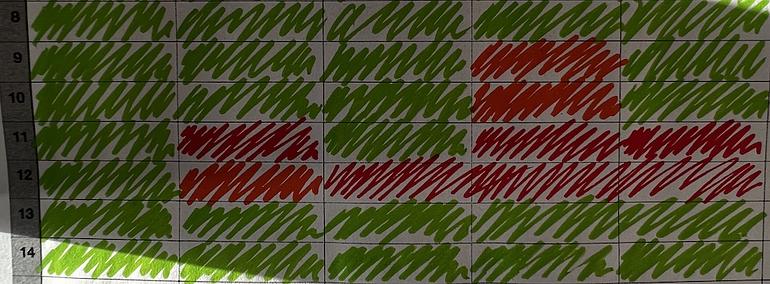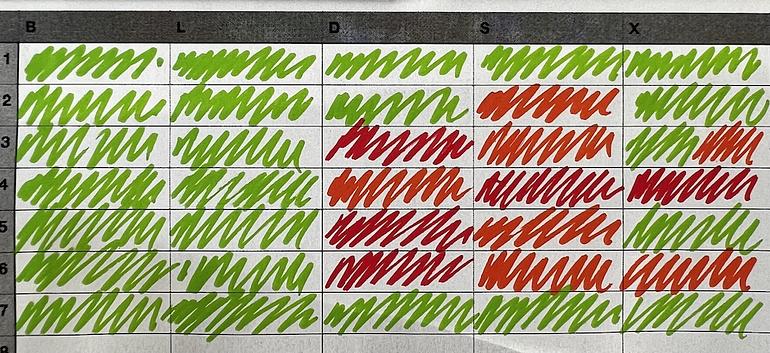Over the last two months, I’ve been making a bit of an effort to finally shed the bonus kilos I’ve acquired over the last 7 years. I’ve attempted this in the past, only to fail, but this time I’ve met with more success. How? By following the Atkins diet. Here’s the deal…
Summary
Mar-19: 90.5kg @ 22.5% fat
May-18: 82.8kg @ 17.3% fat
I also had two periods where I went off the diet during those two months - one was Jacqui’s birthday, can’t remember the other one.
What did I do?
One word: Atkins.
Why Atkins?
I’ve always been sceptical of “diets”, regarding them as something that chicks do for a couple of weeks before stacking the weight back on, so I’ve always favoured the ‘increased exercise and healthy eating’ approach myself. However, it never works. Sure, I’ll lose a bit of weight, but it’s usually only 2-3 kilos and I’ll stay at that weight no matter how much training I do (up to 10hrs a week at times) and, as soon as I stop training, I gradually revert to my old weight. It has been like that for the last few years, always returning to about 90kg, so something new had to be done.
I’d read really good reviews of a book called Good Calories, Bad Calories by Gary Taubes which examines the question of why the population of the western world are turning into fat bastards when we’re constantly reminded to eat healthy etc. It’s a thorough examination of the history of research into obesity, how a low-fat diet came to be the recommended one, and how our bodies process food and register hunger. It’s 460 pages of science discussion, followed by 45 pages of notes and 65 pages of references & bibliography: in short, it’s not a diet book, however I found it extremely interesting.
Its conclusion is that fat doesn’t make people fat, carbs do, due to their effects on insulin. Body can only store fat when insulin is present in bloodstream. Conversely, there are about 30 hormones which cause your fat cells to release fat, and all are less effective in presence of insulin. The standard western diet is high in carbs, particularly highly refined carbs, which have the greatest effect on insulin. The result is that you eat, your blood sugar spikes, insulin spikes, you store the meal as fat, but then insulin stays higher than normal (since your diet is so high in carbs), so your fat cells don’t release as much fat as they should, your cells don’t get the fuel they need and then your body thinks it’s hungry. Also, excessive carbs can also cause most of the western civilisation diseases - heart disease, kidney/liver failure, diabetes etc. You’ll have to read the book for the rationale as it’s too detailed to go into here.
Low-carb diets have been recognised since 1700s as the most effective way to lose weight fast and keep it off. The most well known is the Atkins Diet now, but Atkins didn’t invent it, he just refined and marketed it. Back in 1740s it was known as a Banting diet, after a dude called Banting who popularised it.
Anyway, that’s what got me thinking about giving it a go. The book also goes into detail on the science of why the diet works, so I now understand what’s happening too.
Here’s a v. quick summary (and it’s mainly US-centric with its data):
- older civilisations, prior to meeting western culture: incidence of diabetes, heart disease, etc. extremely rare, regardless of diet composition. some islanders in pacific had diet composed of up to 90% saturated fat (all fish & coconuts), and Inuit traditionally ate only meat & fat: no veggies etc. cause that’s all they had. Again, extremely low incidence of traditional western disease
- about 35 years since the US was told that fat was bad, and low-fat diet recommended
- since then the US has got fatter
- nutritional data shows that people eating on average 150cals more per day than in 70s
- however, they are eating less fat and more carbs
- they are also exercising more, since aerobics/jogging boom took off in 70s. before that, people didn’t really exercise for leisure
- your body can actually get all its nutritional requirements from only red meat!
- it’s almost impossible to overeat on just protein and fats. One study had volunteers aim to eat 3000cals/day for a couple of months. Those eating protein & fat struggled big time to manage it. Those eating carbs as well had no problems reaching the target, and when told to eat as much as they could were able to pack away up to 10,000cals/day consistently!
How does it work
Details of Atkins at their website. Read all 4 phases so you understand the whole thing: most people who criticise Atkins are taking aim at phase one - which you only have to stay in for a minimum of two weeks.
Basic Idea
Your body can burn either alcohol, carbs, or fat for fuel, in that order of preference. Therefore, if you go out for a big meal and then go on the piss, your body is going to store the meal as fat and burn off the alcohol instead. So, you want to force your body to burn fat, therefore you can’t eat any carbs or alcohol.
First two weeks (phase-one) are ‘extreme’. Only 20 grams of carbs per day, i.e: 80cals/day, yes eighty: NO rice, bread, pasta, alcohol etc. However, you can eat as much meat, seafood, eggs, cheese and leafy green veggies as you like. The limited carbs force your body to switch to burning fat. This takes a couple of days, so at some stage in the first 5 days you will feel shit, weak and a bit dizzy if you stand up too quick: this is your body making the switch. Once the switch is made, your body will keep burning fat preferentially unless you start feeding it loads of carbs/alcohol again. Basically it will munch its way through your fat stores.
I weighed myself every morning and recorded my fat percentage. I was also writing down everything I ate as part of ensuring I ate less than 20g of carbs, and on average I was only eating 1600cals/day - which for someone of my size and weight is at least 400cals less than the recommended minimum. However, I never felt hungry and wasn’t starving myself. I ate decent meals, and snacked if I was hungry, but protein & fat keep you feeling full for longer, so I was never hungry.
What did I eat?
A typical day was a fry-up for breakfast: a couple of sausages, rashers and some eggs, or else an omelette with chorizo & mushrooms etc. Lunch was a salad: ham & salami, some cheeses (brie, bocconcini, jarlsberg etc.) with some rocket salad or something. Mayonnaise (the real stuff - whole egg mayo) is OK too. Dinner was a big hunk of meat, with some veggies and maybe some goat’s cheese for some flavour.
Notes
For every gram of carbs your body stores, it also stores 4g of water. So in the first two days you’ll lose over a kilo - that’s all water. Also, as soon as you start eating carbs again, you’ll put over a kilo straight back on as your body stores water again, so factor that in if you are aiming for a goal weight.
Once I switched to fat-burning mode, I was losing about 300g/day, all fat.
You won’t be able to do any intense exercise for a while. When I first started on the diet I couldn’t run anywhere without feeling shit and a bit dizzy, but now I can run 14k easily enough, but at a nice relaxed pace. I doubt I could manage sprints or high intensity stuff, because the fat-burning process only works aerobically. It will not work without oxygen, so any exercise that requires your anaerobic system isn’t going to happen.
You’ll fart and shit less ;-) mainly because your body is using everything you give it. Also, your breath may end up smelling. It’s a by-product of fat-burning, so it’s a good sign that the diet is working the way it should. Mine did, so Jacqui says, but I haven’t noticed anyone shying away from me or standing well back, so it’s obviously not reeking. A couple of sugar-free mints can sort it out if it happens to you.
Common Misconceptions
Atkins is really bad for your heart: not true. The low-fat diet is based on the fact that heart plaques (which cause heart attacks) are full of cholesterol, so doctors concluded that high cholesterol causes heart attacks. However, we now know that there are many different types of cholesterol, some good (HDL) and some bad (LDL). Eating saturated fat, which used always be one of the bad fats, results in an increase of LDL, but also increases HDL by the same amount, so the net effect is zero. Pretty much the only bad fats these days are trans-fats, which are the man-made fats. However, if you have a history of heart-disease in your family and are tempted to give Atkins a go, play it safe and get your cholesterol checked before you start, and maybe again after about a month and see how you’re going.
Ketosis can kill you: not true. Ketosis is a perfectly natural state where your body is burning fat. If you eat your evening meal around 7pm, and don’t eat before going to bed, then when you wake up you are almost certainly in ketosis as your body will have used your stored carbs overnight. If your body wasn’t designed to burn fat, then why would we store it? People commonly confuse ketosis with the far more extreme ketoacidosis, which is a symptom of Type 1 Diabetes or severe alcoholism.
If you like sciencey books and are interested in nutrition, I’d highly recommend Taubes’ book. I’ve another couple of weeks to go. I was about 78kg when I first arrived in Australia in 1999, so I’m aiming to get under 80kg again. 75-80 is what I consider my ‘normal’ weight should be. After my birthday this week, I’ll do another two weeks of the diet and that should be it.

